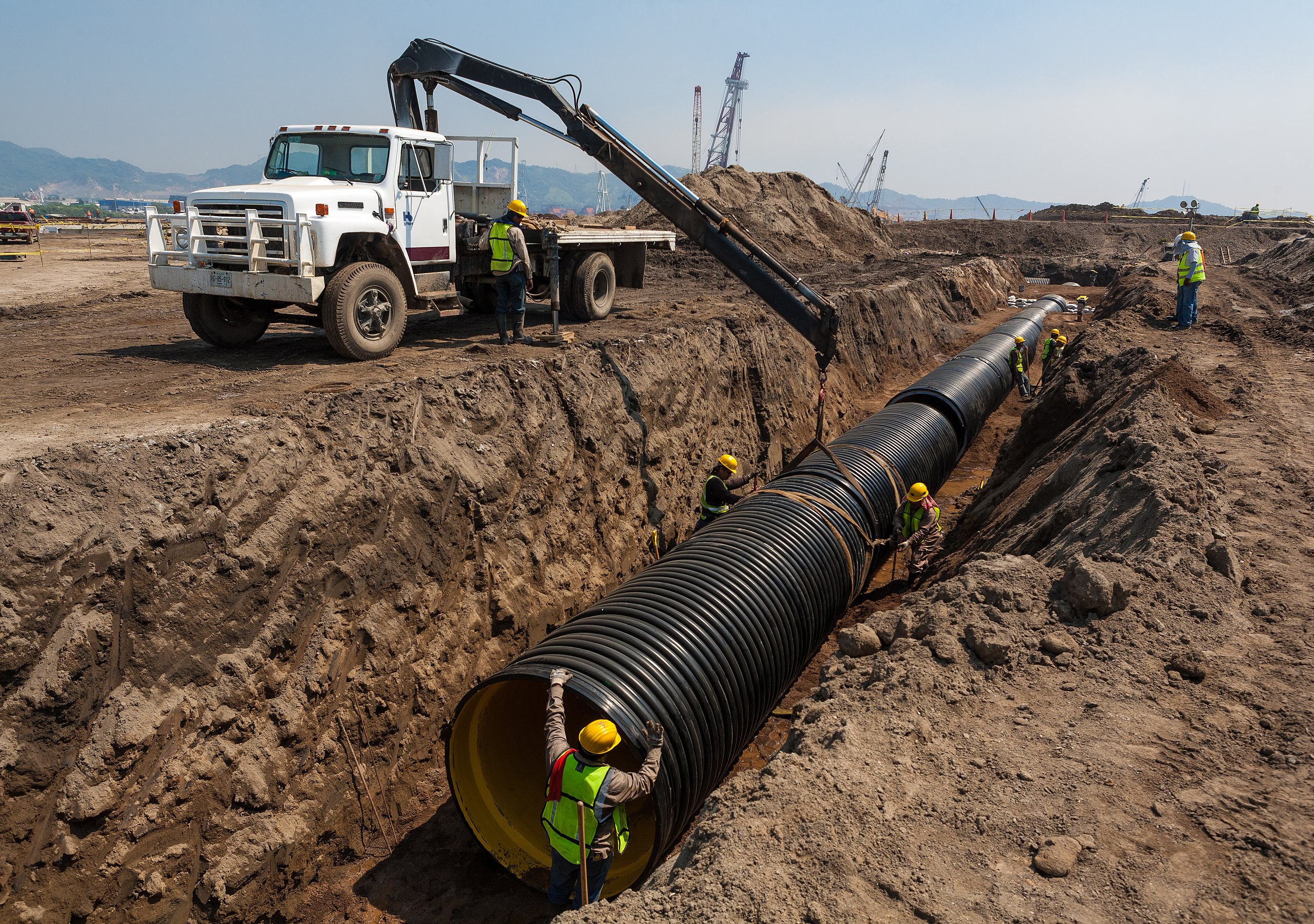Pipe Manufacturing Midland TX: From Raw Material to Finished Pipe
Wiki Article
Recognizing the Key Benefits of HDPE Pipeline for Water and Wastewater Monitoring
Using HDPE pipeline in water and wastewater monitoring presents countless advantages that warrant factor to consider. Its remarkable resilience and lengthy lifespan make it a favored option for lots of tasks. Furthermore, the product's resistance to corrosion and chemical damage boosts its reliability in numerous atmospheres. Nevertheless, the benefits extend beyond simply long life and resistance. Discovering its cost-effectiveness and ecological impact discloses even much more engaging reasons for its prevalent adoption in modern facilitiesExceptional Durability and Longevity

HDPE pipeline attracts attention for its outstanding resilience and long life, making it a recommended option in water monitoring systems. Built from high-density polyethylene, these pipes can endure considerable stress and stress, making certain reputable performance gradually. Their durable nature allows them to endure extreme environmental problems, including temperature level variations and dirt movements, which can cause other materials to fall short.
The life-span of HDPE pipes frequently surpasses 50 years, offering a cost-efficient remedy for communities and markets alike. Additionally, the product's lightweight homes simplify installment, lowering labor expenses and durations. This durability minimizes the requirement for regular repair services or replacements, even more enhancing its financial allure.
In water monitoring applications, the reliability of HDPE pipes means less disturbances and boosted service continuity, making them essential to sustainable infrastructure growth. The combination of longevity and long life strengthens HDPE's function as a foundation in effective water monitoring remedies.

Resistance to Deterioration and Chemical Damages
While several products succumb to deterioration and chemical damage gradually, HDPE pipes display impressive resistance, making them optimal for numerous water administration applications. This resilience comes from the molecular framework of high-density polyethylene, which is inherently non-reactive and does not rust like steels or degrade from exposure to harsh chemicals. Because of this, HDPE is very effective in atmospheres with hostile substances, such as wastewater systems that might include acids, bases, and natural solvents.
In addition, HDPE pipes can withstand environmental variables such as soil level of acidity and saline conditions, better enhancing their suitability for diverse applications (hdpe pipe fittings Midland TX). Their capability to preserve structural stability gradually lowers the threat of leakages and failings, which is critical in guaranteeing the safety and security and integrity of water circulation and wastewater monitoring systems. The resistance to corrosion and chemical damages markedly adds to the general performance and long life of HDPE piping remedies.
Cost-Effectiveness and Financial Benefits
When taking into consideration the economic ramifications of water monitoring systems, the cost-effectiveness of HDPE pipelines becomes noticeable. These pipelines use lower setup and maintenance costs compared to traditional products like metal or concrete. Their lightweight nature streamlines transport and installation, causing reduced labor expenditures. In addition, HDPE pipelines display a long life expectancy, commonly exceeding 50 years, which converts to fewer replacements and lasting cost savings.The resistance of HDPE to deterioration and chemical damage decreases the demand for costly repair services and replacements. The pipelines also sustain efficient water you could try these out circulation, decreasing energy costs connected with pumping systems. By reducing leakages and water loss, HDPE pipes add to considerable financial benefits for communities and industries alike. On the whole, the preliminary financial investment in HDPE piping can yield considerable financial returns over the lifespan of the water administration system, making it a sensible choice for sustainable facilities growth.
Environmental Sustainability and Reduced Impact

Versatility and Flexibility in Installation
As a result of their special residential or commercial properties, HDPE pipes offer remarkable convenience and adaptability in setup, making them appropriate for a large range of applications. Their light-weight nature enables easier handling and transport, decreasing labor costs and installment time. HDPE pipes can be bent and shaped to fit numerous terrains and project needs, which is especially advantageous in challenging environments.In addition, their resistance to rust and chemical damages enables for installment in diverse setups without the demand for specialized protective coverings. Read Full Article The capacity to fuse go to the website joints produces a continual, leak-free system, enhancing the total integrity and dependability of the installment. HDPE's versatility additionally accommodates ground motion, reducing the danger of damages in areas susceptible to moving dirt. In general, these features make HDPE pipes not only functional but likewise a recommended selection for water and wastewater management systems.
Often Asked Inquiries
How Does HDPE Pipe Contrast to PVC in Water Monitoring Applications?
HDPE pipeline provides exceptional adaptability, resistance to rust, and sturdiness compared to PVC. Its lighter weight facilitates simpler installment, while its lengthy lifespan reduces replacement costs, making HDPE a favored option in water administration applications.What Is the Life-span of HDPE Piping Under Common Conditions?
Under normal problems, HDPE pipelines can have a lifespan varying from 50 to 100 years. Their sturdiness and resistance to corrosion add to their long-term efficiency in various applications, making them a reputable option for facilities.Are HDPE Pipes Recyclable After Their Service Life?
Yes, HDPE pipelines are recyclable after their life span. American Plastics HDPE Pipe for Oilfield. They can be processed and repurposed right into brand-new items, greatly decreasing environmental effect and advertising sustainability within the sector, making them an environment-friendly choice for piping optionsWhat Is the Installation Process for HDPE Water Lines?
The installment procedure for HDPE pipes includes site prep work, trenching, pipe combination or mechanical joining, backfilling, and pressure screening. Proper methods guarantee a long lasting and efficient system for transporting water and wastewater effectively.Can HDPE Piping Be Used for Both Safe And Clean and Non-Potable Water Solutions?
Yes, HDPE pipelines can be utilized for both safe and clean and non-potable water systems. Their convenience, longevity, and resistance to deterioration make them appropriate for various applications, ensuring secure and effective transportation of water in various contexts.Report this wiki page